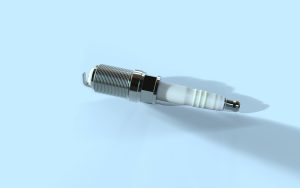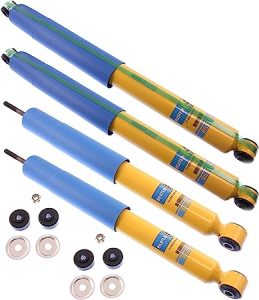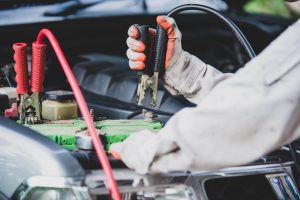Summer is in full swing, and there’s nothing worse than having your air conditioning cut out on a hot day. When a high engine temperature is to blame, it is very frustrating. But don’t panic! In this blog post, we’ll explore some practical steps you can take to get your AC back up and running so you can stay cool all season long. From checking fluid levels to inspecting belts and hoses, we’ve got you covered with expert advice that will help keep your car running smoothly and comfortably.
Table of Contents
ToggleImportance of understanding the relationship between engine temperature and A.C. functionality
The frequency of automotive problems increases as the summer heat rises. One of the most common issues at our shop is when a customer’s A.C. shuts off because of high engine temperature. While this may seem minor, it can be severe. That’s because the relationship between engine temperature and A.C. functionality is delicate.
If your AC shuts off due to high engine temperature, your car cannot cool itself down properly. It can lead to many problems, including engine damage and decreased fuel efficiency. That’s why it’s so important to understand the relationship between engine temperature and A.C. functionality. By doing so, you can avoid potential problems and keep your car running smoothly all summer long.
Causes of Ac off due to high engine temperature
Insufficient Coolant
If your car’s engine overheats, the AC will automatically shut off to prevent damage. A lack of coolant usually causes this, so check the level and add more if necessary. If the problem persists, there could be a leak in the system which will need to be repaired.
In addition, make sure the radiator is properly ventilated and not clogged with debris. Having your A.C. system serviced regularly is also essential to prevent any issues.
Faulty Temperature Sensor
If your car’s AC Off Due To High Engine Temperature, your temperature sensor is likely faulty. Check the sensor itself to make sure it’s not loose or damaged. If the sensor is damaged, you’ll need to replace it. If the sensor is loose, you’ll need to tighten it or replace it.
Faulty Thermostat
A malfunctioning thermostat can cause your air conditioner to turn off due to a heated engine. Verify that the thermostat is set to the appropriate temperature if your air conditioner suddenly stops working. If not, change it and check if it solves the issue. The sensor or the wiring may be faulty if the thermostat is set correctly, yet the A.C. turns off. Check these components and replace them if necessary.
Loose Radiator Cap
If your car’s AC Off Due To High Engine Temperature, the radiator cap is one of the first things you should check. The engine may overheat if the radiator cap is unfastened because it could allow coolant to flow out. First, tighten the radiator cap and ensure the engine is cool. Then, remove the cap and screw it back on until it’s snug. Avoid overtightening it to prevent damaging the radiator.
If you’re still having trouble with your A.C. after tightening the radiator cap, you may check for the other components.
Faulty Radiator
If ac turned off due to high engine temperature, it can be due to faulty radiator. A faulty radiator can also cause the engine to catch fire. The best course of action is to take your radiator to a trained mechanic who can diagnose the issue and fix or replace it as necessary if you feel it is defective. If a radiator is malfunctioning, it should be changed as soon as possible to prevent further harm to the engine.
Defective Water Pump
The engine is kept cool by a water pump, and if it isn’t functioning properly, the engine may overheat. There are a few signs that your water pump may be failing:
- Your engine temperature gauge is rising into the red zone
- You hear a squealing noise from the engine bay
- Your car overheats even when you’re not using the A.C.
If you suspect your water pump is failing, immediately take your car to a mechanic. They can identify the issue and, if required, swap out the water pump. In the meantime, avoid using the A.C. until the problem is fixed to prevent further damage to the engine.
Weak Ac Compressor
Your car’s AC compressor could not be strong enough to cool your engine adequately. Your engine can overheat and shut down as a result. If this occurs, you’ll need to have the A.C. compressor replaced by a mechanic. You can try some of these suggestions in the interim to keep your engine cool:
- Park in the shade or use a sunshade on your windshield
- Turn on the air conditioning only when necessary
- Keep the windows up and the vents closed while driving
Faulty Radiator Fan
If your car’s ac turned off due to high engine temperature, you should check the radiator fan. The radiator fan helps to keep the engine cool by circulating air through the radiator. The engine may overheat if the radiator fan is not functioning properly.
There are a few signs that you may have a faulty radiator fan:
- The engine temperature gauge is reading higher than average.
- The engine is running hot, even after you have turned on the A.C.
- There is an unusual noise coming from under the hood.
- The check engine light is on.
If you notice any of these signs, it’s important to take your car to a mechanic right away so they can diagnose and fix the problem.]
Blocked or Leaking Radiator Hoses
If your car’s engine overheats, one of the places to check is the radiator hoses. If a hose is leaking, it will need to be replaced. A blocked hose will need to be cleared immediatly.
There are a few ways to tell if a radiator hose is blocked or leaking:
- Check the dashboard’s temperature display. It may be a sign that your engine is overheating if it reads higher than usual.
- Check under the hood for any signs of leaks or wetness.
- Feel the hoses themselves; if they are hot to the touch, this could indicate they are blocked.
Broken Serpentine Belt
If your engine is overheating, the serpentine belt is one of the first things you should check. This belt drives the water pump, alternator, and power steering pump. If it snaps or breaks, those components will no longer function. If your serpentine belt is broken, you must replace it immediately. In the meantime, you can drive without air conditioning to prevent the engine from overheating. Monitor the temperature gauge and pull over if it gets too high.
Engine Oil Issue
Engine oil is another major cause of engine overheating. It plays the primary role in keeping engine temperature optimal. If your car engine oil gets dirty or low, it causes the engine to overheat. Sometimes changing the engine oil can solve this problem.

Also Read: Car Shakes when A.C is On – Solutions
Explanation of why the A.C. shuts down when the engine overheats
The engine in your car has a temperature sensor that monitors how hot the engine is running. When the sensor detects the engine getting too hot, it signals the A.C. unit to shut down. This is a safety measure to prevent the AC unit from overworking the engine and causing it to overheat.
D.I.Y. Fixes for an AC System Shutting Off due to High Engine Temperature
If your car’s air conditioning system shuts off due to high engine temperature, you can do a few things to fix the problem. Check the engine coolant level first, then add more if necessary. Next, make repairs to any cooling system leaks you find. Have the A.C. system serviced by a professional to ensure it operates correctly.
If the problem persists, you may need to replace the thermostat. Check your car’s manual for instructions on how to do this. Additionally, you may need to replace some damaged components, such as the radiator or coolant hoses. You can also clean the air conditioning condenser and evaporator coils with compressed air. Finally, ensure all connections are secure, and all hose clamps are correctly tightened.
If these DIY fixes do not work, having a professional technician look at your car’s AC system is best.
Preventive Measures for Avoiding AC Shutdown
If your car’s engine temperature rises too high, the A.C. will automatically shut off to prevent further damage. However, you can take some preventive measures to avoid this from happening in the first place. First, make sure that your car’s cooling system is functioning properly. This involves verifying sure there are no leaks and checking the coolant level. It will be difficult for your cooling system to successfully keep your engine cool, which could cause greater engine temperatures and a possible AC shutdown.
Second, avoid running your AC while idling. Idling puts extra strain on the cooling system as it has to work harder to maintain a comfortable cabin temperature. If you need to idle for over a minute or two, turn off the AC completely to give your cooling system a break.
Take action before your car is already overheating. Pull over and turn off the AC immediately if you see the temperature gauge creeping up. This will allow your engine to cool down before it gets too hot and potentially shuts off the A.C.

Managing AC Shutdown Situations
If your car’s engine temperature rises too high, the AC will automatically shut off to prevent damage. This can be a frustrating experience, especially on a hot day. However, there are some things you can do to manage the situation and keep cool:
- Pull over immediately and turn off the engine. Do not try to continue driving; this will only worsen the problem.
- Open the hood and let the engine cool down for at least 30 minutes. Do not remove the radiator cap; hot steam or fluid could burn you.
- Once the engine has cooled down, check the coolant level and add more if necessary. You may also need to add water if the coolant is low.
- Start the engine again and turn on the A.C. If it still doesn’t work, drive to a nearby service station or mechanic for help.
Common Mistakes to Avoid
If your car’s air conditioning suddenly shuts off due to high engine temperature, there are a few common mistakes you’ll want to avoid. First, don’t panic. It’s not the end of the world, and your car will likely be just fine. Second, don’t try to turn the A.C. back on immediately. This can make the problem worse by overworking your car’s already stressed cooling system. Instead, give your car a few minutes to cool down before turning the AC back on slowly and gradually. Remember to check your car’s coolant levels. If they’re low, topping them off can help prevent future overheating incidents.
Finally, pay attention to the problem. If your car’s AC continues to shut off even after you let it cool down and check the coolant levels, it may be time to take it in for a professional diagnosis. Ignoring an overheating problem can lead to more severe and expensive damage, so it’s best to get it checked out sooner rather than later.
Conclusion
If you car’s AC Off Due To High Engine Temperature don’t worry! With the right steps, you can get it running again and keep it from happening in the future. Start by checking coolant levels and replacing any leaks or damaged hoses. Make sure all belts are tight and properly tensioned as well. Clean out debris from around the radiator fan to ensure proper airflow, then take a look at the thermostat itself for any signs of corrosion or damage before having an auto technician inspect it further if necessary. These steps will help you stay cool when driving during hot summer weather!

Frequently Asked Questions
What are the risks of ignoring A.C. shutdowns due to engine temperature?
A few risks are associated with ignoring AC shutdowns due to high engine temperatures. First, if the engine gets too hot, it can cause serious damage to the engine itself. This can lead to expensive repairs or even replacement. Additionally, if the engine overheats and shuts down while you’re driving, you could be stranded on the side of the road. Ignoring AC shutdowns can also void your car’s warranty.
Can a faulty AC system damage the engine?
A faulty air conditioning system can damage your engine in several ways:
- It can cause the engine to overheat by not circulating coolant properly.
- It can strain the engine by forcing it to work harder to cool the cabin.
- It can leak chemicals onto hot engine parts, causing corrosion and other damage.
- It can cause the engine to stall or fail if the compressor fails.
Are there any temporary solutions for an overheated engine?
If your engine is overheating, there are a few things you can do to fix the problem temporarily. First, turn on the heater in your car to help cool down the engine. You can also turn on the fan but do not put it on full blast. If you have a coolant system, ensure it is filled up and working properly. Pull over and turn off the engine if it is overheating severely. Let it cool down for at least 20 minutes before starting it up again.







